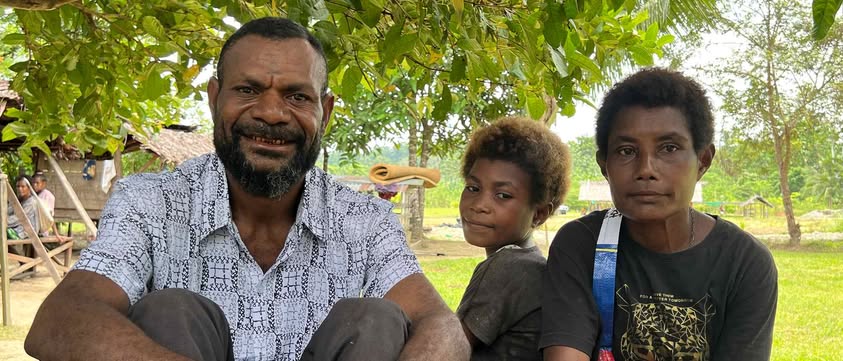Tucked deep in the rugged terrain of West Sepik Province, the Maka community once faced steep challenges—low agricultural productivity, poor market access, and a lack of basic services where families struggled to afford education, healthcare, and even food, and for many, hope felt like a distant dream.
Basic amenities like education, healthcare, and transportation were often out of reach which left local families to face constant hardship. Generations grew up with these challenges, with little hope of unlocking their community’s potential.
Joseph, the Chairman of the Fugumi Cocoa Business Group, recalls those difficult times.
“We wanted to start a business but had less opportunity to sell our produce,” which was of low volume and quality. Referring to challenge they face due to lack of income, he adds, “finding school fees was difficult [for us], and even [nutritious, protein-rich] food was hard to afford.”
That future began to change with the arrival of the EU-STREIT PNG Programme, a European Union-funded initiative implemented by FAO, ILO, ITU, UNCDF, and UNDP. Designed to boost key rural value chains—cocoa, vanilla, and fisheries—the programme brought much-needed technical training, farming equipment, and market infrastructure to Maka.
Farmers like Joseph received pest-tolerant cocoa seedlings, nursery tools, and training in sustainable, climate-smart techniques. Over 4,000 new seedlings were planted by 40 local farmers, breathing life into once-depleted cocoa blocks.
“When I saw the new tools and materials, I was very happy,” Joseph remembers.
But the support went beyond cocoa. In 2024, the Programme helped Joseph and Damia begin freshwater fish farming. With 400 fingerlings stocked in their first pond, the family soon expanded to three ponds, producing enough fish to feed their household and support other villagers.
A major turning point came with the construction of the Cocoa Trade and Depot Facility in Vanimo, linking remote farmers to buyers for the first time. Regular truck trips now connect Maka with the provincial capital, enabling reliable cocoa sales and delivering essential supplies. “The trucks help us sell our cocoa,” says Damia. “I am happy.”
Farmers have since built a local cocoa fermentary with Programme backing, allowing them to process beans locally and earn higher prices. The ripple effects are clear—improved incomes, better nutrition, and renewed community spirit.
Damia, who now tends to their fishponds daily, captures the spirit of resilience that drives Maka forward.
“Only my husband and I manage this work,” she says. “But we do it because we want a better future for our children.”
To ensure this progress lasts, the Cocoa Board of Papua New Guinea has taken over nursery operations, while West Sepik Investment Ltd, the business arm of the provincial government, now manages the trade facility. These transitions are part of the Programme’s strategy for long-term sustainability—empowering local institutions to carry the work forward.
As part of the EU’s Global Gateway Strategy, EU-STREIT PNG is pioneering rural transformation in Papua New Guinea through climate-resilient farming, improved transport, and digital tools for real-time farming advice and weather alerts. These innovations are helping farmers reduce costs, boost productivity, and build more secure futures.
Looking back, Damia is filled with gratitude.
“Thank you for the fish and cocoa you brought,” she says. “We are very happy now.”
From hardship to hope, Maka is rewriting its story—one harvest, one fishpond, and one child’s education at a time.

